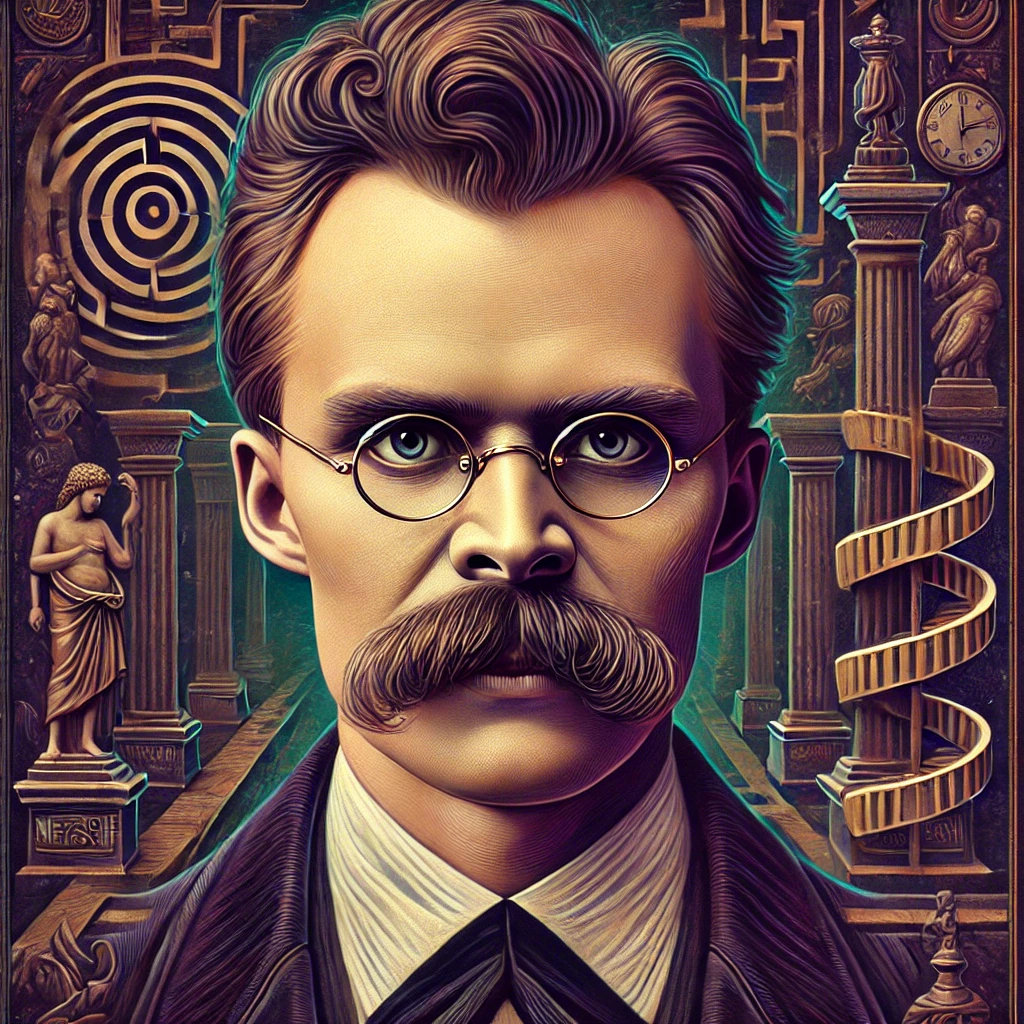Friedrich Nietzsche

Birth Date: 1844-10-15
Death Date: 1900-08-25
Place of Birth: Röcken, Prussia
Place of Death: Weimar, Germany
Century: 19th
Region: Europe
"God is dead. God remains dead. And we have killed him."
Born in Röcken, Prussia, Nietzsche was a classical philologist before turning to philosophy. His works explored the decline of religion and the rise of secularism in the modern world. Nietzsche believed that traditional Christian morality was no longer relevant in the face of human freedom and individual potential.
Nietzsche encouraged people to challenge traditional values and create their own path in life. He believed that by rethinking what we believe, we can live more honestly and fully.
Thus Spoke Zarathustra: A philosophical novel where Nietzsche presents his ideas on the 'Übermensch' (Overman) and the eternal recurrence. Beyond Good and Evil: Nietzsche critiques traditional morality and emphasizes the will to power as a driving force in human life.
Nietzsche was influenced by philosophers like Arthur Schopenhauer and Søren Kierkegaard, both of whom explored the darker aspects of human existence, including suffering, despair, and meaninglessness.
Nietzsche's ideas on the 'death of God,' the Übermensch, and nihilism have influenced a wide range of thinkers, from philosophers like Michel Foucault and Jean-Paul Sartre to writers and artists. His critiques of morality and religion continue to resonate in contemporary philosophy and culture.
Nietzsche's work was highly controversial, particularly his rejection of Christian values and his critique of modern morality. After his death, his sister edited and promoted his writings, often distorting his ideas to align with her nationalist and anti-Semitic views, leading to a misinterpretation of Nietzsche’s philosophy.
Georg Lukács: Lukács criticized Nietzsche for rejecting traditional values and promoting a philosophy of individualism that he believed was nihilistic and dangerous.
Nietzsche challenged old ideas about morality, religion, and the nature of human existence. His philosophy paved the way for postmodernism and existentialism, influencing the way people think about individuality, freedom, and the meaning of life.
Nietzsche’s health was always fragile, and he suffered from numerous physical and mental ailments throughout his life. At the end of his life, he had a mental breakdown, during which he famously embraced a horse to protect it from being whipped in the streets of Turin.





